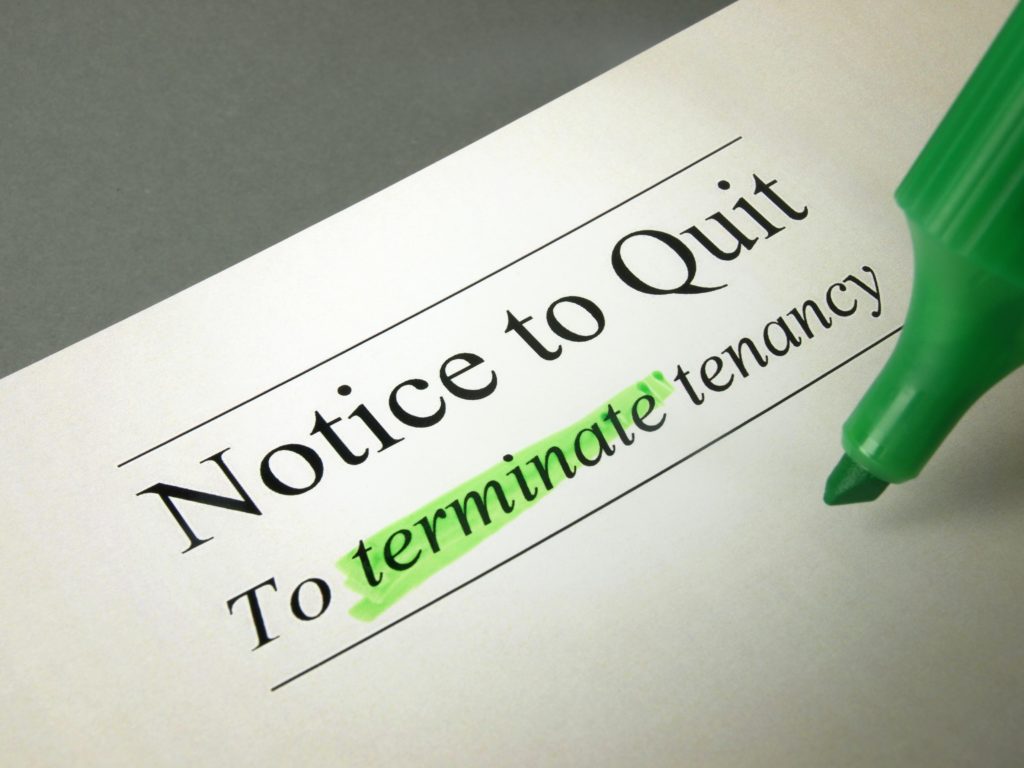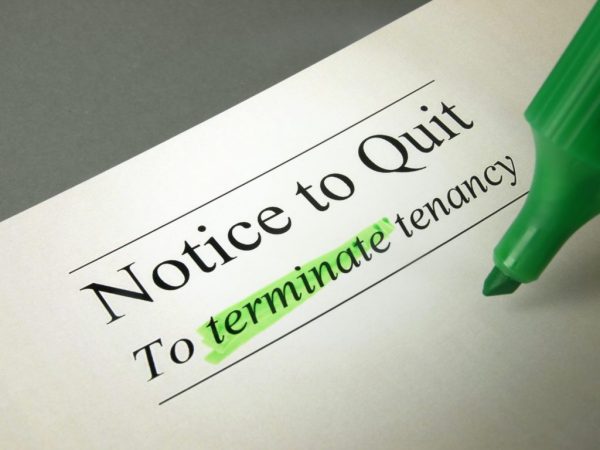A quit notice is a document that a landlord addresses to their tenant, informing them to leave the space they have rented.
Read more about Real estate
This document typically lets its recipient (the renter) know how long they have to leave voluntarily. If they fail to do so before the deadline that the notice stipulates, the property owner has the right to take legal action against them, and ultimately force them out.
Although quit notices are commonplace in the landlord-tenant engagement in Nigeria, many people– especially tenants –are in the dark about the laws concerning such notices. It’s often not clear how, when, or why they should be served, and what courses of action landlords or tenants can take thereafter.
This article answers some of the commonly asked questions around when landlords are legally allowed to issue quit notice.
On What Grounds Should A Landlord Issue A Quit Notice?
A landlord can serve their tenant a quit notice if the tenant fails to pay their rent within the period in which it is due. Ideally, the notice should be the landlord’s last resort after negotiations with renters and, perhaps, granting them a grace period within which to settle the debt.
However, the law does not require landlords to grant an extension of the deadline for rent payment before handing a quit notice to their tenant. They are within their rights to serve the notice when renters are not forthcoming with their rent when it’s due.
Property owners can also request that tenants vacate their premises if the renter has violated any of the terms of the tenancy agreement which both parties signed. Such violations may include disturbing the public peace, engaging in violent acts, housing criminals, and getting involved in illegal activity on the landlord’s property.
Sign up for the Connect Nigeria daily newsletter
Landlords may ask their tenants to leave the space they have rented for apparently light reasons if their tenancy agreement spells such things out as conditions for terminating the renters’ tenancy. This is one reason why tenants should carefully read such terms and conditions before agreeing to them.
What Is The Duration For A Quit Notice?
Quit notices should state the time within which recipients can exit their landlords’ property without being physically forced to do so. The deadline they give should depend on how long the renters’ tenancy runs.
For example, if a tenant pays their rent yearly, the law dictates that their landlord should serve them a quit notice that’ll expire in six months from when it is issued. The duration for other tenancy time spans are listed below:
- Weekly tenancy: 7 days
- Monthly tenancy: 1 month
- Quarterly tenancy: 3 months
Because a majority of tenancies are set to run on an annual basis, most landlords are bound by law to provide their tenants with a quit notice that’ll last six months. But if the property in question is commercial, renters should get 3 months’ quit notice.
What Should A Quit Notice Contain?
A quit notice should contain the following information:
- The date on which it is served.
- The address of the property to which it applies to.
- The name (or names) and address (or addresses) of the tenant (or tenants).
- The duration of the notice.
Register to attend the Connect Nigeria Business Mixer
What Should Happen After A Landlord Serves Their Tenant A Quit Notice?
A landlord who has served their tenant a quit notice may still rescind the notice if they are able to resolve the problem that causes them to issue it in the first place. This can happen within the period that the notice allows for.
However, if the tenant refuses to comply with the quit notice, the landlord can file an eviction suit with their local court. If they do not leave after this, the court will order for a Writ of Possession to be issued. This is effectively an official eviction letter.
If the renter still fails to quit, the landlord can request a Warrant of Restitution, which will enable them to evict the tenant. At this stage, they can ask law enforcement to help them move the tenant out of their property.
Note: The landlord has to properly serve the quit notice, i.e. prepare the document and hand it to the tenant concerned. If they do not do this, the notice will not be valid. The tenant also has the right to sue their landlord if they feel that the landlord has wrongfully initiated the eviction process.
Featured Image Source: Apartment List
Got a suggestion? Contact us: [email protected]


